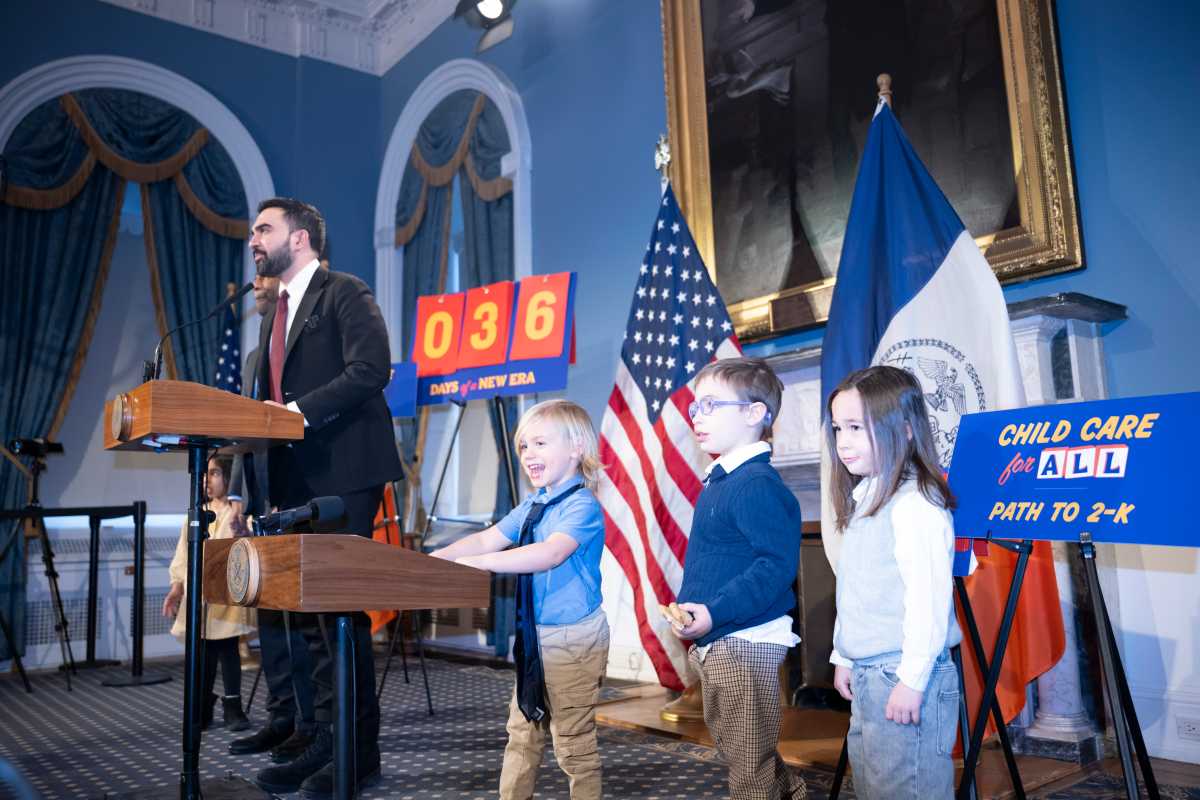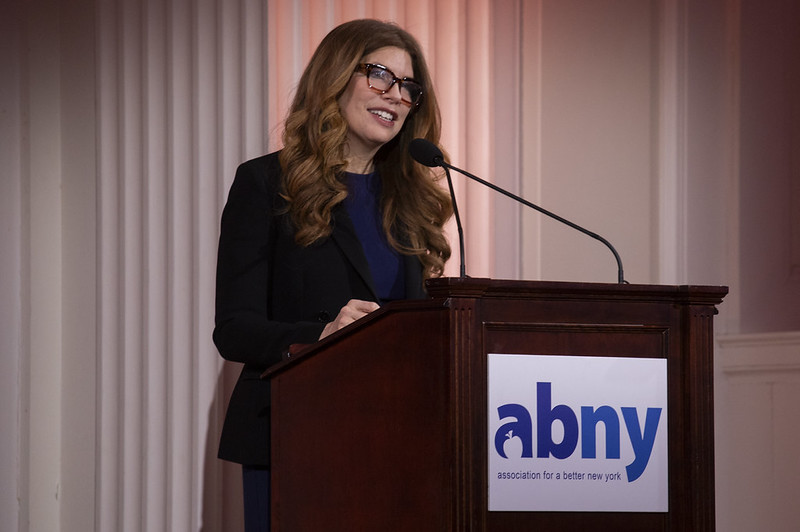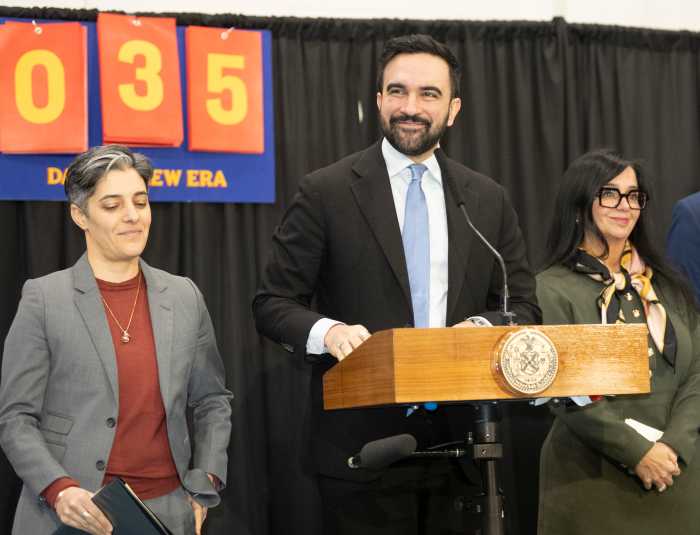By Bill Parry
Mayor Bill de Blasio presented “a radical change of approach” with his plans to combat the homeless crisis after the shelter population grew to a record 60,000, leading to the city’s use of commercial hotels andinadequate cluster sites in other boroughs to house the overflow.
The 114-page report, called “Turning the Tide on Homelessness,” proposes opening 90 new borough-based shelters in the next five years, while slowly phasing out the use of hotels, which gave rise to civic anger in many neighborhoods, particularly Maspeth, last summer.
“Today, we turn the page while launching a new, 21st century response to the 21st century reality of homelessness,” de Blasio said Tuesday. “For years, too many families have struggled against rising rents to stay in the homes in communities they love. Our plan will continue to bring more people off the streets, reduce the number of shelter sites by almost half, while strengthening services and keeping homeless New Yorkers closer to the supports they need to help them get back on their feet. It will take a united effort and the help of many New Yorkers, but together we will turn the tide of homelessness.”
The plan acknowledges that in the past, the city has not always sufficiently brought communities to the table as partners in addressing homelessness with shelters opening without proper community notification. The de Blasio administration is now pledging to provide at least 30 days notice prior to opening a new shelter and for the first time the city will also notify communities when renting rooms at commercial hotels during the transition period while new shelter capacity comes online.
The Maspeth-Middle Village Task Force, which led nightly protests against the city’s effort to convert the Holiday Inn Express into a homeless shelter for more than four months. says the policy shift proves their strategy paid off. The new community shelters will allow homeless families and individuals will be able to remain in their own familiar neighborhoods while they rebuild their lives.
The Maspeth-Middle Village Task had been asking for this while protesting at various hotels around the borough and four rallies outside the home of Department of Social Services Commissioner Steven Banks.” There’s no doubt that our traveling protests influenced the mayor’s decision,” Juniper Park Civic Association President Bob Holden said. “It is inhumane to warehouse people in hotels and we are glad we helped the administration see the light on this. Everyone agrees that the homeless from their communities should be helped locally, and this announcement is definitely a step in the right direction.”
State Sen. Tony Avella (D-Bayside), who spoke out against the conversion of the Pan American Hotel into a homeless shelter for several years, and joined The Maspeth-Middle Village Task force for several rallies, was critical of the mayor’s plan. Avella announced his candidacy for mayor at the Maspeth Holiday Inn Express in December.
“Rather than seeking proactive solutions and strategies to stop the factors that cause homelessness, this mayor is reacting in a delayed fashion only to stop the number of homeless New Yorkers from rising any higher,” Avella said. “This mayor does not wish to reflect on himself and his policies, he refuses to acknowledge that his management is a major reason for the severity of this crisis. Giving a flowery speech to talk about the difficulties of homelessness is just political rhetoric. It does very little to lead towards real action. We need to focus our efforts on ending the policies that lead to homelessness and supporting our fellow New Yorkers rather than treating them like a burden on the city.”
De Blasio, who is running for re-election this year, did take responsibility for his administration’s shortcomings in battling the homeless crisis. He also backed a plan by state Assemblyman Andrew Hevesi (D-Forest Hills). His Home Stability Support plan continues to gain support from elected officials, advocates and community leaders across the state.
“It would offer a statewide, financially sound program to help tens of thousands of individuals and families at risk of homelessness, and take into real accounts the real costs faced by New Yorkers in terms of rising rental and heating costs in cities across the state, as well as our overburdened shelter system and eviction courts.” Hevsi said.
The mayor also called on Albany to do more to help.
“We need Albany at the table — we’re 43 percent of the state’s population,” he said. “We need Albany to be part of the solution, and they can be with Assemblyman Hevesi’s bill.”
De Blasio also warned that his plan would move slowly as talks begin with community boards and civic organizations.
“This is a blood and guts war strategy, because we will be fighting this war for a long time,” he said.
Reach reporter Bill Parry by e-mail at bparr





































